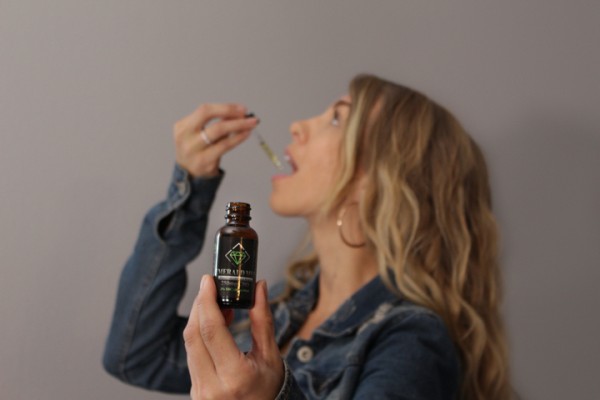Collagen: Working Beyond Aging and Skin Care
According to US News, "collagen is a bit like oat bran in the 80s," that's being added basically to everything. For quite some time now, it has already been popular, particularly in sports nutrition products, as well as in supplements.
To date, collagen is also being famously being added to an array of packed foods and drinks like soups, flavored coffee creamers, instant oatmeal cups, protein bars, popcorn, wellness shots, and even drinking water, among others.
This 'now-a-favorite' ingredient has turned out to be among the fastest-growing classifications of functional foods. The Grand View Research reported that by 2027, the worldwide collagen market is projected to reach $7.5 billion, with a 6.4-percent annual growth rate.
ALSO READ: Dry Skin During Menopause: Here are 5 Natural Ways to Avoid It

A study presents, women who took 50ml of a collagen supplement in liquid form every day for 60 consecutive days experienced a noticeable decline in skin dryness and wrinkles, as well as considerable increases in the firmness of their skin after 12 weeks compared to individuals who took a placebo.
A Popular Ingredient
Hardly ever, you'd miss this so-called 'collagen craze.' Most coffee shops and smoothie counters serve their specialty beverages with an ingredient.
You'll find some of these drinks, and even foods ranging from matcha lattes and smoothies to healthy desserts with collagen, popping on your social media feed.
Even the modern-day cookbooks are highlighting collagen in their recipes with convincing promises of glowing and young-looking skin, improved immune functions, healthier gut, and sustained weight loss, among others.
DON'T MISS THIS: 6 Reasons Why You're Gaining Weight Unintentionally
A Protein
Collagen is a protein, although it is regarded as an incomplete protein as it does not have tryptophan, which, according to nutrition experts, "one of the most essential amino acids."
Despite that, collagen still goes to function efficiently in the body in a lot of powerful ways. First, despite its being incomplete, it is still the most abundant protein of the body.
Specifically, it functions as a building block of many parts of our body, including tendons, ligaments, skin, hair, nails, and bones.
Collagen is derived from the Greek word glue as that's vitally what it's doing. Also, this protein forms the connective tissue in our body and functions as a glue, holding everything together.
What Collagen Does to Your Skin
It's a fact that as we get older, our bodies naturally begin to reduce the production of collagen. There's no way we can replace the collagen we lose as fast as it is breaking down with age.
Skin experts say the most visible signs of decline in collagen in the body include fine lines, sagging skin, and wrinkles.
So, how can collagen help with these occurrences? Is consuming more of it actually helpful? Some studies have shown that collagen supplementation could be beneficial, although reports say many of these are small and partly financially backed by the collagen supplement industry.
A German study done in 2014 showed that women whose ages range between 35 and 55 who took 2.5 or five grams of water-dissolved collagen powder for eight weeks experienced substantial skin elasticity improvement.
Meanwhile, a study which the Clinical Interventions in Aging journal published presents that women who took 50ml of a collagen supplement in liquid form every day for 60 consecutive days experienced a noticeable decline in skin dryness and wrinkles, as well as considerable increases in the firmness of their skin after 12 weeks compared to individuals who took a placebo.
A review in 2019 of eight different studies, which included more than 800 patients, came out with a conclusion saying, initial results "are promising for the short- and long-term use of oral collagen supplements" for the healing of wound and aging skin.
More so, as indicated in the review, oral collagen supplements "increase skin elasticity, hydration, and dermal collagen density," as well.
IN CASE YOU MISSED THIS: Is Excessive Exercise Linked to Eating Disorders? Here's What Studies Say
Check out more news and information on Dermatology on MD News Daily.
Oct 25, 2020 10:00 PM EDT





